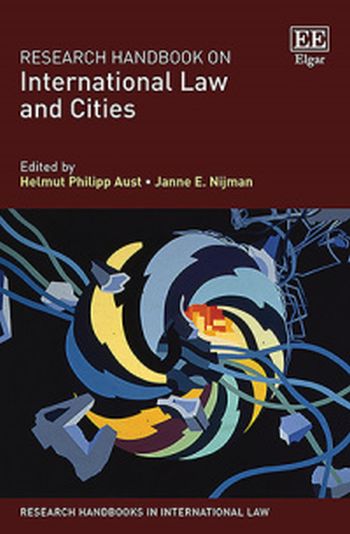We will be closed from 5pm Thursday 17th April for the Easter Bank Holidays, re-opening at 8.30am on Tuesday 22nd April. Any orders placed during this period will be processed when we re-open.

This groundbreaking Research Handbook provides a comprehensive analysis and assessment of the impact of international law on cities. It sheds light on the growing global role of cities and makes the case for a renewed understanding of international law in the light of the urban turn.
Written by a group of scholars from a wide range of different geographical and theoretical backgrounds, this Research Handbook contributes to a better understanding of the practice of cities in various fields of international law ranging from climate change over human rights and migration to security governance. Additionally, it offers reflections on how to account for this urban turn in the light of historical and cross-cutting theoretical perspectives from legal and non-legal scholarship alike.
Combining doctrinal work and analysis of international practice with critical historical and theoretical contributions, this Research Handbook will be a must-have reference book for researchers and students in the field of international law as well as other disciplines, including human geography, urban studies, sociology and political science.